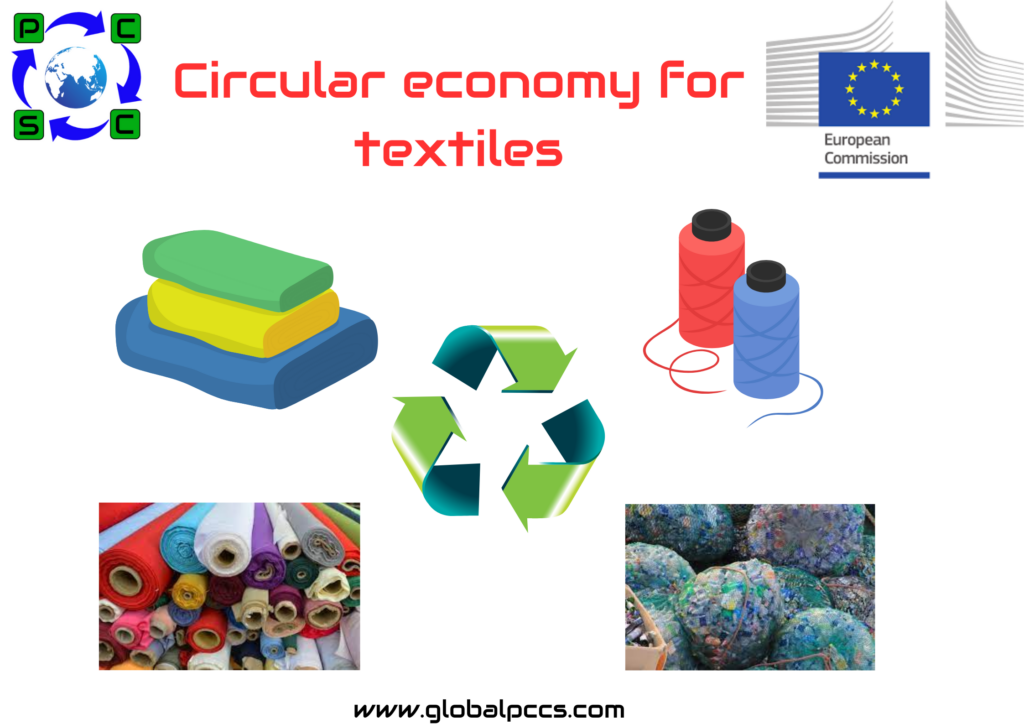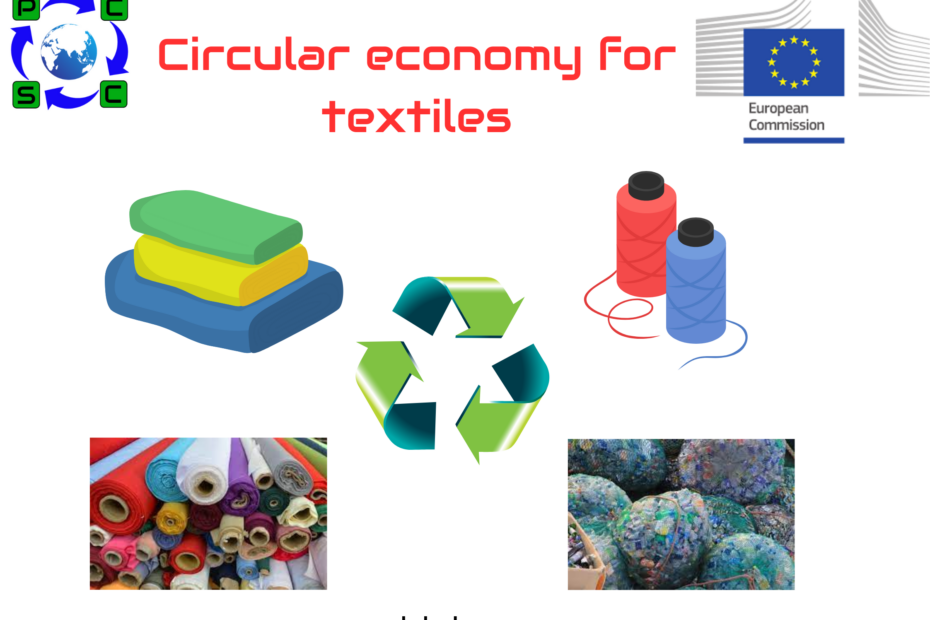
EU Commission: Taking responsibility to reduce, reuse and recycle textile waste and boosting markets for used textiles.
Background
12.6 million Tonnes of textile waste are produced annually in the EU. 5.2 million Tonnes of garbage, or 12 kilogram of waste per person annually, come from just clothing and
footwear. Only 22% of post-consumer textile waste is currently collected separately for reuse or recycling, with most of the remaining waste being frequently burned or dumped.
The EU’s waste management policies are governed by the Waste Framework Directive. It establishes definitions for terms relevant to waste management, such as those for waste,
recycling, and recovery, the hierarchy of waste, and fundamental ideas.
The Commission promised in the EU Strategy for Sustainable and Circular Textiles that it will propose steps to harmonise the Extended Producer Responsibility regulations for textiles and create financial incentives to improve the sustainability and circularity of textile goods. Today’s action fulfils that promise.
Today’s scenario
To encourage the sustainable management of textile waste throughout the EU, the Commission is currently proposing regulations that would hold producers accountable for
the entire lifecycle of textile goods.
According to the EU Strategy for Sustainable and Circular Textiles, this project will hasten the growth of the distinct collection, sorting, reuse, and recycling industry for textiles in the EU.
The supply of worn clothing is likely to grow, which will benefit customers in the EU and elsewhere by saving money and reducing the burden of textile production on the
environment.
The Commission is recommending that all EU Member States enact obligatory Extended Producer Responsibility (EPR) programmes for textiles.
The management of waste from a variety of products, including packaging, batteries, and electrical and electronic equipment, has been improved by EPR programmes.
Producers will be responsible for paying the costs associated with managing textile waste, which will encourage them to improve product design from the outset and reduce waste
and increase the circularity of textile products.
According to the ‘eco-modulation’ idea, the amount producers will pay to the EPR programme will be changed based on how environmentally friendly their textiles are.
Additionally, Member States will find it simpler to put into practice the duty to collect textiles separately beginning in 2025 in accordance with current law thanks to common EU
extended producer responsibility standards.
Contributions from the manufacturers will pay for investments in specialised collection, sorting, reusing, and recycling capabilities.
The proposed waste management regulations are designed to make sure that used clothing is separated for reuse and that what cannot be reused is sent to recycling as soon as
possible.
A larger market for used textiles and more commercial prospects will be beneficial for social entrepreneurs engaged in the collection and treatment of textiles.
Next actions
The European Parliament and the Council will now consider the Commission’s proposal for a targeted revision of the Waste Framework Directive via the regular legislative process.








 Authorised IMDS & CDX Training & Consulting partner for
Authorised IMDS & CDX Training & Consulting partner for






